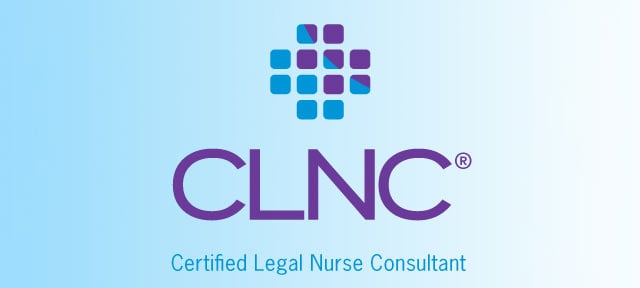That’s a pretty powerful question with many different answers. Back in June, I tweeted about a high-profile case that involved an MD who was blogging about his medical malpractice trial as the trial was in progress. I used this as an example to illustrate why Certified Legal Nurse Consultants should recommend that their attorney-clients check out social media (and the blogosphere) for postings by opposing parties (and their own parties), before and during a trial. That case ended in a substantial settlement for the plaintiff after the MD was shown to have exposed trial strategy, ridiculed the case and made generally inappropriate postings for which he was confronted during the trial.
Another MD blogged about a recently concluded medical malpractice trial. His blogging initially raised all sorts of HIPAA questions (which became a nonissue once the suit was filed and anything happening at trial became public). Just to be safe, the MD allegedly changed some of the “facts” as you can read in his disclaimer. This raises issues of what sort of information should or should not be exposed, even after a trial. Granted you can sit in a courtroom, listen to the testimony and see the evidence, but you are not privy to the thinking, reasoning and strategy decisions of the attorneys and the parties they represent. Perhaps that’s something an attorney wouldn’t want his defendant or plaintiff blogging about. Read the articles and analyses on both these cases and make your own decisions. Keep in mind that attorneys are under their own ethical restrictions that we’ll discuss below.
A famous poker player won’t appear on those poker television shows that televise a player’s hand. He doesn’t want people to see how he plays, bluffs or calls on certain hands because they could develop a strategy to beat him. Trial attorneys might feel the same way about having their strategies exposed.
That being said, let’s look at a different set of potential bloggers, the jurors and/or courtroom spectators. In our electronic age no one, and I mean no one, likes to be “off the grid.” Spectators blogging from the courtroom are the equivalent of news reporters and don’t present a problem.
Smart phones with easy Internet access like the Blackberry® or iPhone® have created modern day courtroom issues. Judges have always admonished jurors not to read about a case or view television trial coverage, but how many judges give jury instructions regarding blogging? Tweeting (micro-blogging) and even researching the basis of the parties’ claims raises issues during a trial. Even something as simple as texting can be problematic. Remember, jurors are supposed to make their decisions based solely on the information they receive in the courtroom – only the evidence introduced at trial. So if a juror reads a blog about the trial, that would be the same as viewing a news report about the trial or Googling the underlying claims. That sort of behavior risks prejudicing the case or raising the possibility of a mistrial. Attorneys should search social media and the blogosphere during and after trial for traces of this type of misconduct. Some people are shameless about what they post, so armed with a few keywords and content of text messages sent during a trial, it can be quite simple to discover and possibly render a juror liable for contempt.
So far we’ve discussed the plaintiffs, defendants and jurors – what about the plaintiff and defense attorneys? Any Certified Legal Nurse Consultant will remember from the Institute’s CLNC® Certification Program that attorneys are ethically prohibited from disclosing certain confidential client communications without the client’s consent. This applies to the blogosphere both during and after trial. But what about statements made in advance of trial or while selecting the jury that might tend to influence a well-read jury pool? A few attorneys make money writing books about their high-profile clients but that’s well after the client’s gone to jail (or not). A gag order by a judge can preclude an attorney from blogging about an ongoing trial. Attorneys may use hypothetical postings as long as there is no reasonable likelihood the client or situation can be identified. With all this in mind, blogging, texting and even list serve postings will be an issue to watch (or read about).
Judges, like attorneys, are ethically restricted from discussing pending or ongoing matters being litigated. So, if you think you see the judge texting from beneath the bench, let your attorney-client know. They may not want to risk the ire of a judge who’s simply discussing dinner plans, but might infer the judge wasn’t fully present during trial.
Finally, there’s you – the legal nurse consultant. As you work closely with the attorney-client and the litigation team, you’ll have inside information about the case, the parties, strategies, etc. As an agent of the attorney you are also precluded from disclosing certain confidential information. If you value your legal nurse consulting business you must refrain from tweeting and blogging about a trial in progress (“The defense expert is getting blown away – we’re moving in for the kill with my questions on SOC.”) without your attorney’s knowledge and permission. In fact, I recommend you not discuss your cases at all on the Internet. Frankly, it’s poor business practice.
Social media and blogging are emerging parts of cyberspace and both sides in the legal arena need to explore and monitor their usage. It’s a brave new world of communications and communicability for legal nurse consultants and the legal profession. If you use your mind (while others around you are losing theirs), you’ll successfully avoid any amateur mistakes.
Success Is Inside!
P.S. Comment and share how the blogosphere is changing your career and life.









Just as you have stated Vickie, as an RN and now a Certified Legal Nurse Consultant, any information or comments regarding any legal issues or documents I’ve had access to do not belong on the Internet. Once anyone hits the ENTER button, those comments are now visible to the WWW! It could be disastrous for client information or legal strategies to be made public. Lastly, there goes all the hard work to establish yourself as a reputable Certified Legal Nurse Consultant. You’ve killed your business and your reputation or worse!
I contribute to Vickie’s blog quite often and a few other legal nurse or attorney blogs or newsletters occasionally. I enjoy this practice as a way to stay in touch with legal and medical issues and keep my writing skills fresh. When I have to sit down and write a report for an attorney, I am able to do it a little more effortlessly. I am very conscious of the content that I put in Internet postings for the reasons that Vickie mentions.
I worked on a case where if it had not settled, the next step would have been to start looking into the physician’s personal communications on the Internet. The physicians were careful to document conservatively. However, the plaintiff’s narrative described comments from the defendants that human nature tells you were discussed with other physicians or staff probably on the Internet in a blog or other media. It is a very sinking feeling to have incriminated yourself in what you thought were privileged communications.
If it had not been for Vickie’s series of blogs discussing Internet issues and discoverability, I might not have turned my attention to it. I was focused on the medical records, depositions, and researching the medical issues in the above case.